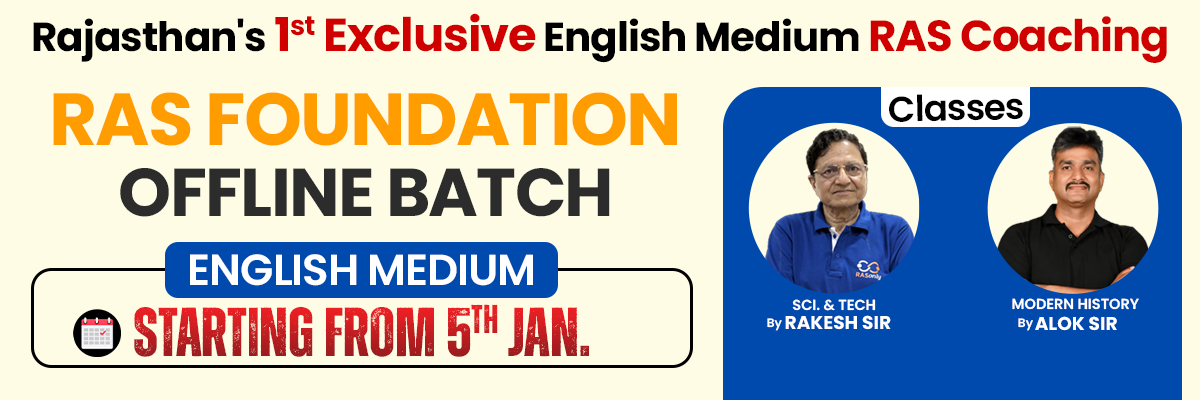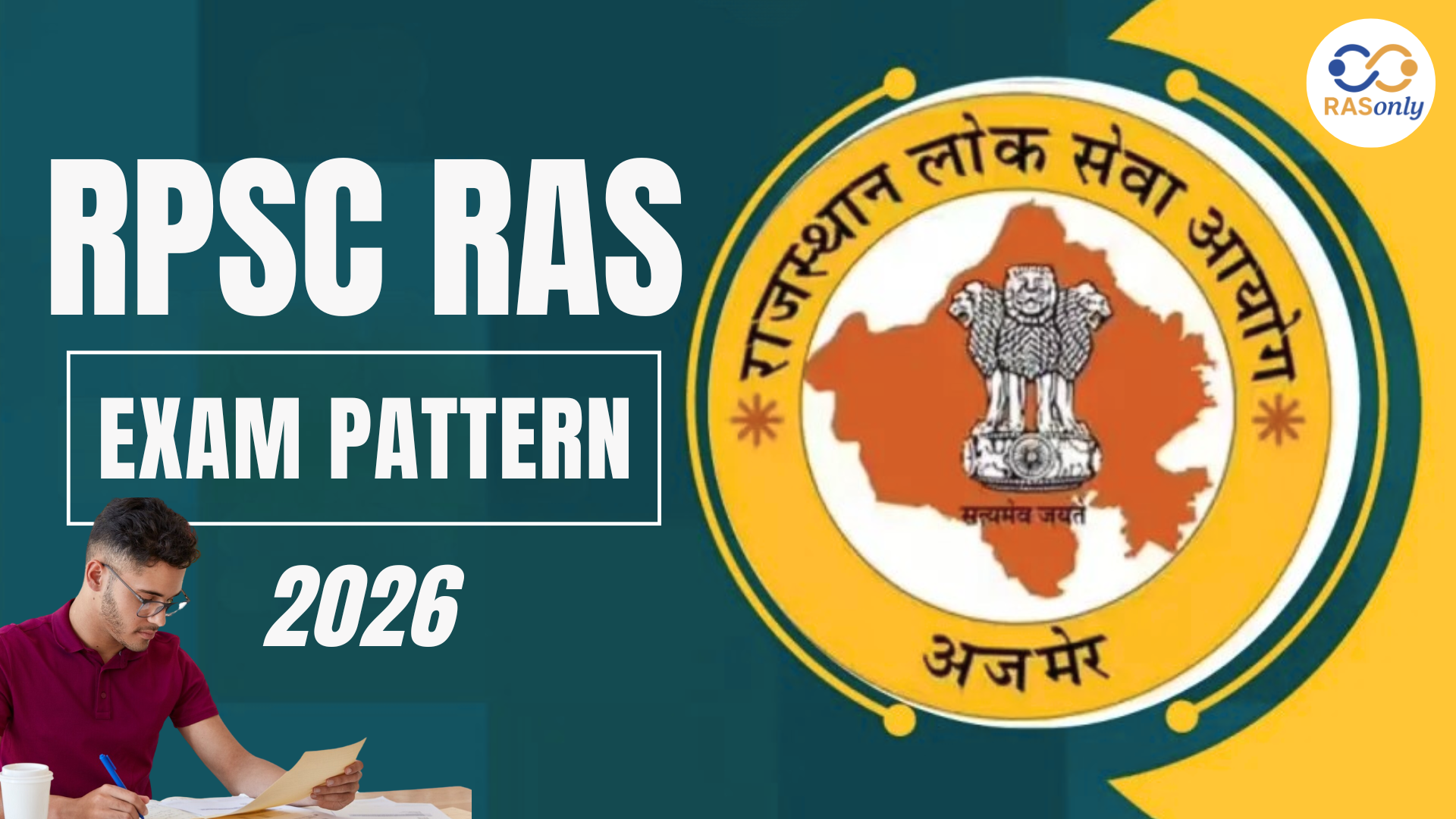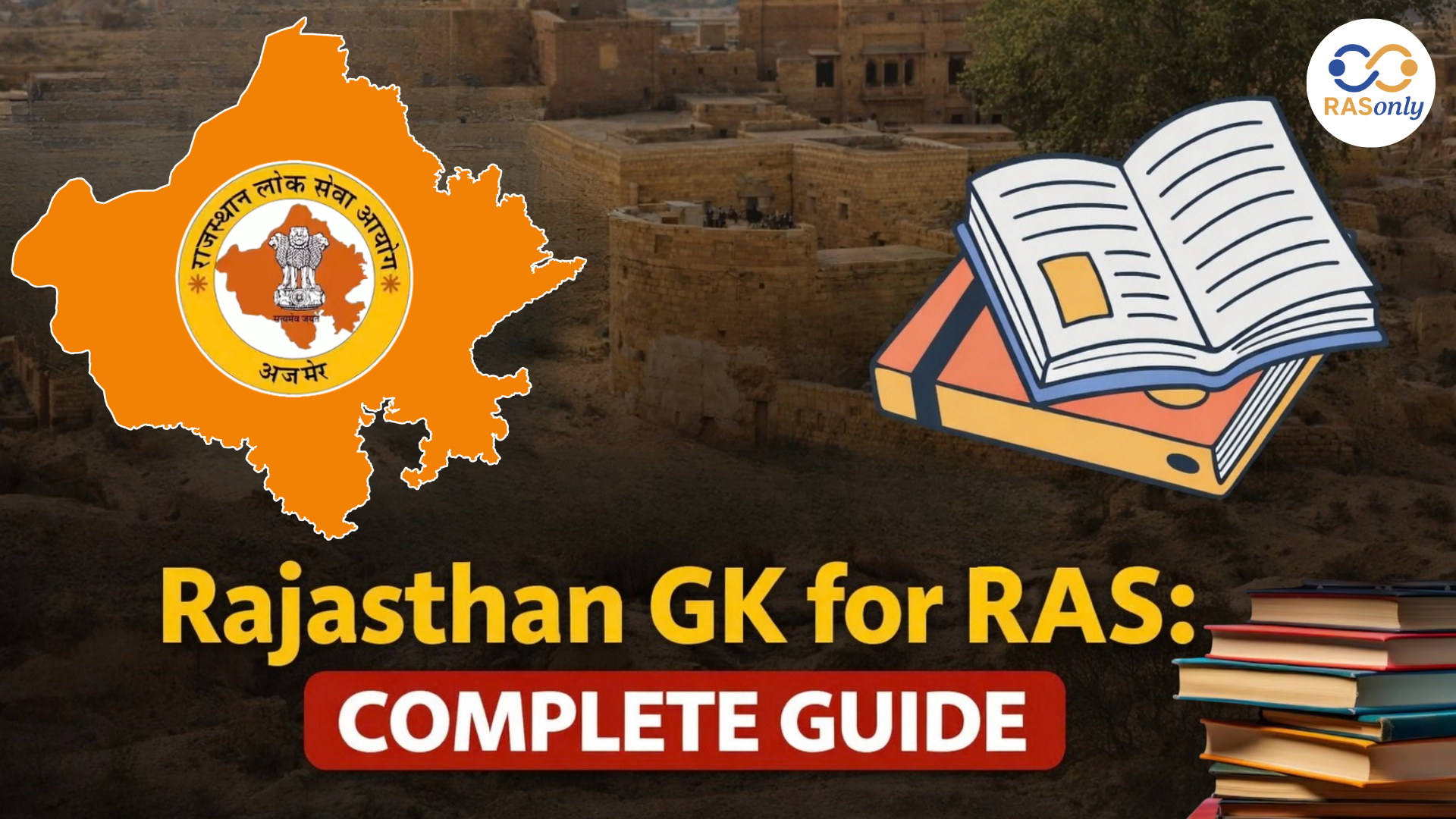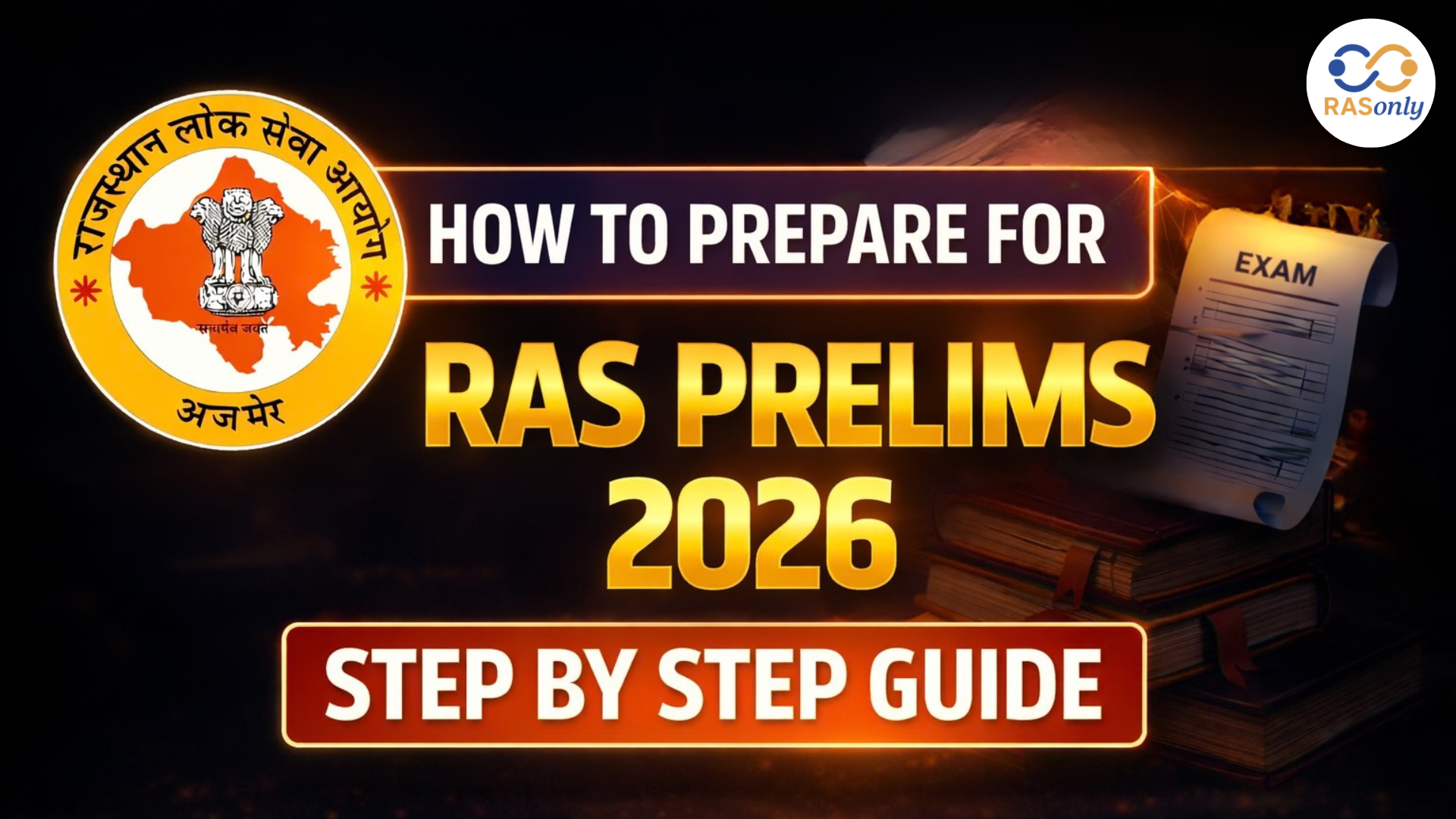RPSC RAS 2026 Subject Wise Exam Pattern for Prelims, Mains & Interview Details
- >
- Preparation Tips
- >
- Daily Study Routine for RAS Mains 2026 – Best Strategy, Timetable & Tips
Daily Study Routine for RAS Mains 2026 – Best Strategy, Timetable & Tips

Get in Touch with RASonly!

A smart, disciplined, and well-structured daily study routine is essential for preparing for the RAS Mains 2026 exam. This guide outlines a practical strategy, an ideal daily timetable, subject-wise time allocation, an answer writing practice plan, and effective revision techniques. It explains how to balance the static syllabus, current affairs, and Rajasthan-specific topics while avoiding common mistakes. Following this routine will help candidates improve consistency, writing skills, confidence, and overall performance in the RAS Mains 2026 exam.
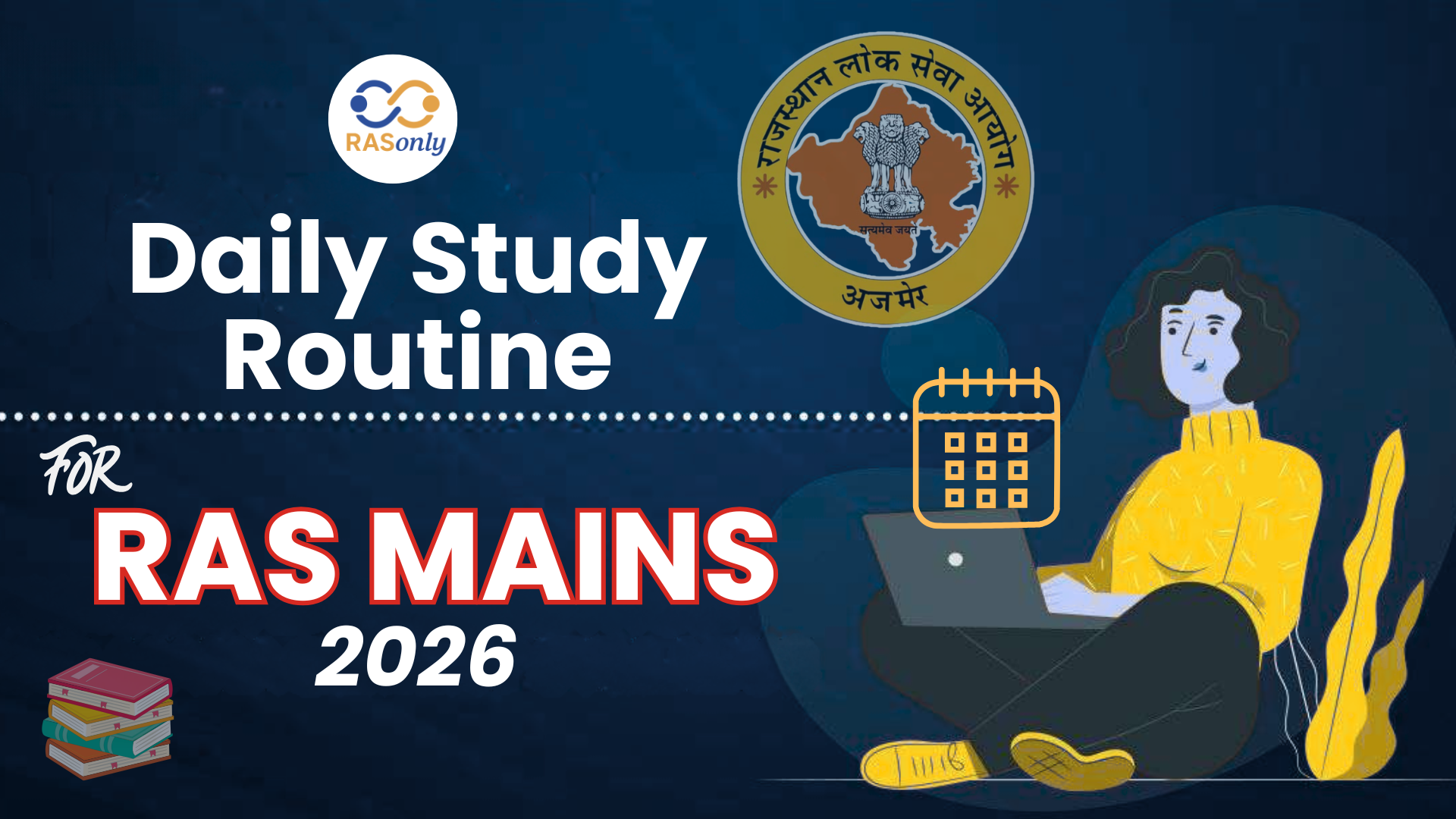
Preparing for RAS Mains 2026 is not just about studying hard. It is about studying smart, consistently, and with a clear daily structure. Many aspirants know the syllabus but fail to convert that knowledge into effective answers because they lack a disciplined daily study routine for RAS Mains 2026.
This blog will give you a complete, practical, and realistic routine. You will find a clear strategy, a time-based timetable, subject-wise allocation, revision plans, answer writing practice, and proven tips that successful candidates follow. If you implement even 70 percent of what is written here, your preparation will become far more focused and confident.
Understanding the Demand of RAS Mains 2026
Before creating a daily study routine for RAS Mains 2026, you must understand what the exam demands.
RAS Mains is not a test of memory. It is a test of:
- Conceptual clarity
- Analytical ability
- Answer writing skills
- Time management
- Consistency over long periods
The syllabus is vast, but the pattern is predictable. This means a well-planned routine can cover everything without burnout.
Why You Need a Fixed Daily Study Routine for RAS Mains 2026
Many aspirants study for long hours but see little progress. The problem is not effort, it is direction.
A structured daily study routine for RAS Mains 2026 helps you:
- Discuss the syllabus in a systematic way.
- Make both the subject and the current, and have the subject in balance.
- Answer writing daily.
- Frequently revise but not in a panic.
- Avoid last-minute pressure
In the absence of a routine, preparation will be random. Preparation is predictable and fruitful with a routine.
RAS Mains 2026 Exam Pattern Overview
All RAS Mains 2026 aspirants need to understand the exam pattern to develop successful study strategies. Candidates must complete four descriptive papers at the examination including three General Studies sections and one combined language section of English and Hindi. The examination consists of four papers which allocate 200 marks for each section and last for three hours per paper. The mains test assesses candidates' deep subject expertise alongside their writing abilities and understanding of different topics through four descriptive papers.
Here’s a table summarizing the RAS Mains Exam Pattern 2026:
| Paper No. | Subject | Marks | Duration |
|---|---|---|---|
| Paper I | General Studies I (History, Culture, Geography of Rajasthan) | 200 | 3 Hours |
| Paper II | General Studies II (Administration, Ethics, Polity) | 200 | 3 Hours |
| Paper III | General Studies III (Economy, Science, Technology, Reasoning) | 200 | 3 Hours |
| Paper IV | General Hindi & General English | 200 | 3 Hours |
Total Marks: 800
Best Strategy to Build a Daily Study Routine for RAS Mains 2026
Before moving to the timetable, let us understand the core strategy behind an effective routine.
Core Principles of RAS Mains Strategy
- Read less but reread it several times.
- Blend the fixed syllabus and present-day affairs on a daily basis.
- Answer writing during the first month.
- Review weekly, daily and monthly.
- Have one subject as the main subject on a daily basis.
This plan will guarantee breadth rather than superficial training.
Ideal Study Hours for RAS Mains Aspirants
There is no magic number, but consistency matters more than hours.
Recommended study duration:
- Beginners: 6 to 7 hours daily
- Intermediate aspirants: 7 to 8 hours daily
- Serious Mains-focused aspirants: 8 to 9 hours daily
Quality of study is far more important than sitting with books all day.
Daily Study Timetable for RAS Mains 2026 (Ideal Model)
Below is a sample daily study routine for RAS Mains 2026. You can adjust timings according to your comfort, but keep the structure intact.
Daily Timetable Table
| Time Slot | Activity |
|---|---|
| 6:00 – 7:00 AM | Revision of previous day + current affairs notes |
| 7:00 – 8:00 AM | Newspaper reading and analysis |
| 8:00 – 9:00 AM | Breakfast and short break |
| 9:00 – 11:00 AM | Core subject study (Paper-wise) |
| 11:00 – 11:30 AM | Break |
| 11:30 – 1:30 PM | Secondary subject or optional topic |
| 1:30 – 2:30 PM | Lunch and rest |
| 2:30 – 4:00 PM | Answer writing practice |
| 4:00 – 4:30 PM | Break |
| 4:30 – 6:30 PM | Rajasthan-specific topics |
| 6:30 – 7:30 PM | Light revision or value-added notes |
| 7:30 – 8:30 PM | Dinner and relaxation |
| 8:30 – 9:30 PM | Daily revision and planning for next day |
This timetable balances learning, practice, and revision without mental fatigue.
Subject-Wise Daily Study Routine for RAS Mains 2026
To avoid confusion, divide your day based on paper requirements.
Paper I and Paper II (General Studies)
Daily focus areas:
- History, Polity, Geography, Economy
- Indian society and governance
- World affairs and international relations
Spend at least 3 to 4 hours daily on GS papers.
Paper III (Rajasthan Specific)
Rajasthan content requires daily attention.
Include:
- Rajasthan history and culture
- Rajasthan polity and administration
- Rajasthan economy and current issues
Allocate 1.5 to 2 hours daily without fail.
Paper IV and V (Optional or Language Papers)
- Practice writing skills regularly
- Focus on structure, clarity, and presentation
- Revise grammar, essays, and comprehension
Even 1 hour daily makes a huge difference.
| Subject | Suggested Daily Time |
|---|---|
| General Studies Paper I | 2 hours |
| General Studies Paper II | 2 hours |
| General Studies Paper III | 2 hours |
| Hindi & English | 1.5 hours |
| Answer Writing Practice | 1 hour |
| Current Affairs & Newspaper | 1 – 1.5 hours |
| Revision | 1 hour |
Daily Answer Writing Practice Strategy
RAS Mains success is based on answer writing.
Daily plan:
- Write 2 to 3 answers a day in the beginning.
- Raise to 5 to 6 responses in three months.
- Combine fixed and dynamic questions.
Follow this structure:
- Introduction with context
- Body having headings and examples.
- Conclusion with way forward
It is vital never to skip writing answers even during low-energy days.
Weekly and Monthly Planning in Daily Study Routine for RAS Mains 2026
The routine is best supported by weekly and monthly objectives.
Weekly Targets
- Select one major subject out of GS.
- Change the state of Rajasthan twice.
- Write one sectional test
- Analyze mistakes
Monthly Targets
- One complete paper syllabus.
- Revise all previous topics
- Test one complete mock test.
Such stratification planning eliminates the fear of being overworked with syllabus.
Smart Revision Technique for RAS Mains
Revision should be active, not passive.
Effective methods:
- Short notes for each topic
- Mind maps and flowcharts
- One-page summary sheets
- Weekly revision slots
In your daily study routine for RAS Mains 2026, revision should take at least 20 to 25 percent of your total study time.
Common Mistakes to Avoid in Daily Study Routine for RAS Mains 2026
Many aspirants fail not because of lack of effort, but due to wrong habits.
Avoid these mistakes:
- Studying too many books
- Ignoring Rajasthan-specific syllabus
- Delaying answer writing practice
- Not revising regularly
- Changing routine frequently
Stability beats intensity in long-term preparation.
Tips to Maintain Consistency and Motivation
Consistency is harder than strategy.
Practical tips:
- Fix your study place and timings
- Track daily progress in a notebook
- Take one full break every week
- Avoid comparison with others
- Focus on daily improvement, not perfection
Motivation comes from routine, not the other way around.
How to Customize This Daily Study Routine for RAS Mains 2026
No routine is universal. Modify based on:
- Your strengths and weaknesses
- Working or full-time student status
- Time left for the exam
The structure should remain the same, but time blocks can shift.
Conclusion
Successful preparation of mains is rooted in a well organized daily study routine of RAS Mains 2026. The exam is unkind to those who work hard arbitrarily, but kind to those who maintain continuity, clarity, and hard work over a long duration. Through the routine, aspirants are able to go through the syllabus in an orderly manner, striking balance between static subjects and the present times as well as building robust practice in writing answers. And continuous revision and weekly review will make sure that the learning is maintained and enhanced. One should not forget that consistency is necessary and not perfection. Even constant improvement is a boost of confidence and the elimination of stress as the test approaches. Be focused, believe in your routine and be flexible. Through hard work and a focused day-to-day schedule, RAS Mains 2026 is clearable with positive knowledge.
FAQs
Post Category
- RAS Salary
- Result
- RAS Admit Card
- RAS Job
- RAS Cutoff
- Preparation Tips
- RAS Answer Key
- RAS Exam Analysis
- RAS Syllabus
- RAS Previous Year Papers
- RPSC RAS Exam Pattern
- RAS Interview
- RAS Mains Exam Date
- RAS Vacancy
- RAS Test Series
- RAS Best Books
- RAS Preparation Resources
- RAS Coaching Centre
- History
- Polity
- Geography
- Economics
- Science
- Art and Culture
- RPSC RAS Application Form
- RPSC RAS Notification
RASonly Interview Guidance Program

Mr. Ashok Jain
Ex-Chief Secretary Govt of Rajasthan
- IAS officer of the 1981 batch, Rajasthan cadre.
- Passionate about mentoring the next generation of RAS officers with real-world insights.
- Got retired in Dec 2017 from the post of Chief Secretary of the state of Rajasthan.

Mr. Guru Charan Rai
Ex-ASP / SP in Jaisalmer
- Guru Charan Rai, IPS (Retd), retired as Inspector General of Police (Security), Rajasthan, Jaipur in 2017.
- Served as ASP and SP in Jaisalmer, Nagaur, Sri Ganganagar, Sawai Madhopur, Dausa, Sikar, and Karauli.
- He also held key positions as DIGP and IGP in the Law and Order division.

Mr. Rakesh Verma
Ex-IAS Officer, B.Tech, MBA, and M.A. (Economics)
- IAS officer of the 1981 batch and retired in Chief Secretary Rank.
- Civil servant of high repute and vast experience.
- Has been teaching UPSC CSE subjects for the last six years.
Related Post
Daily Current Affairs for RAS Exam Preparation 2026
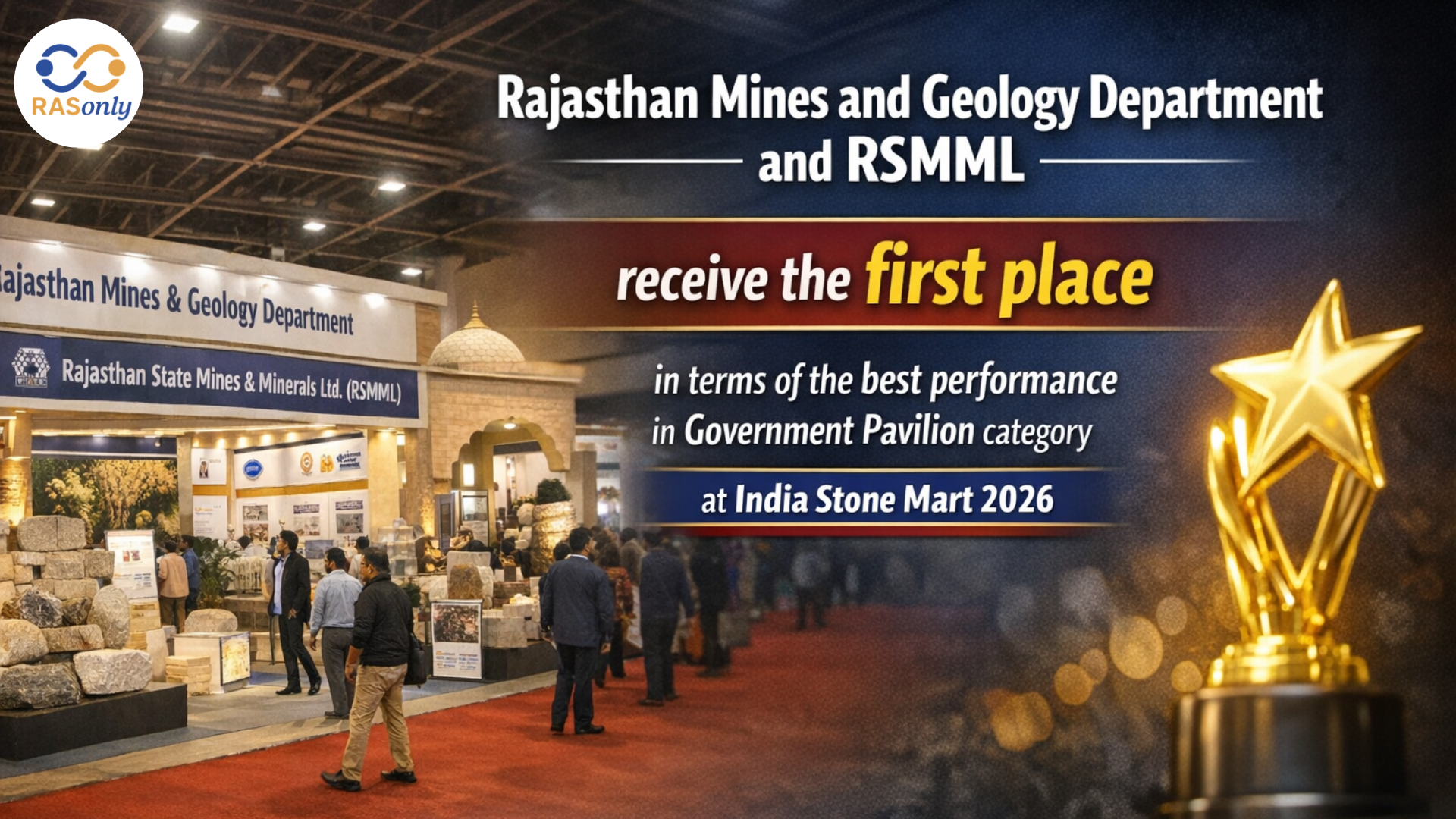
Rajasthan Mines & RSMML win Best Pavilion at India...
February 10, 2026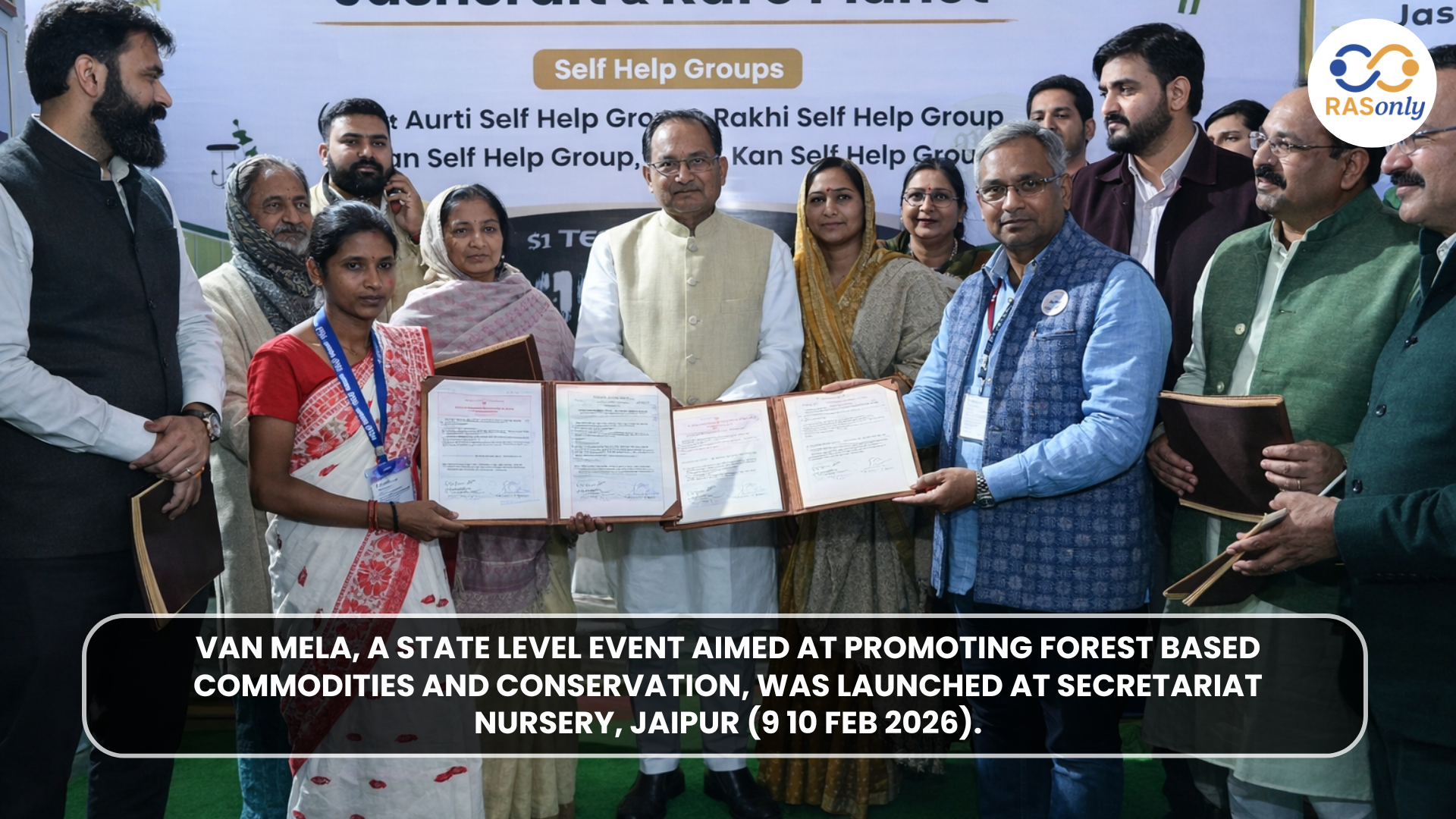
Rajasthan’s state-level Van Mela inaugurated in Jaipur
February 10, 2026
Shrinimbeshwar Mahadev Animal Fair returns to Sanderav after 33...
February 10, 2026
RSPCB signs MoUs with IIT Jodhpur & MNIT Jaipur...
February 10, 2026👉🏻 Register Today to Join Classes! 👍🏻
- Team RASOnly -
🎯 Benefits of RASOnly Coaching:
- ✅ 1:1 Mentorship with RAS Officers
- ✅ Experienced and Expert Faculty
- ✅ Free Library Access
- ✅ Daily Minimum 4 Hours Must
- ✅ Comprehensive Study Material
- ✅ Regular Tests & Performance Analysis
- ✅ Personalized Guidance & Doubt Solving
- ✅ Online & Offline Class Options
- ✅ Affordable Fees with Quality Education
Key Highlights:
- 👉🏻 3-Day Refund Policy
- 👉🏻 New Batch Starting from 04 August
- 👉🏻 Registration Amount: Only ₹1000




